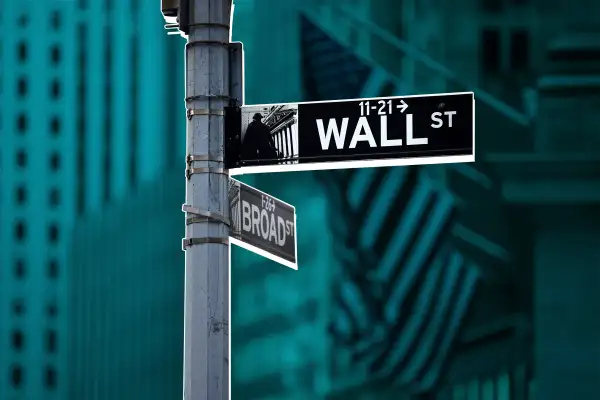Twenty Years Ago, 9/11 Shut Down the Stock Market for Nearly a Week. Here's What Investors Learned
Money is not a client of any investment adviser featured on this page. The information provided on this page is for educational purposes only and is not intended as investment advice. Money does not offer advisory services.

When the U.S. stock market opened for trading on Sept. 17, 2001, the bell ringing ceremony held special significance. While there was an important, practical element to that day’s event — markets were reopening after four days of closure in the wake of the 9/11 terrorist attacks — it also marked the beginning of Wall Street’s return to a semblance of business as usual.
The S&P 500 Index plunged more than 11% in the days after 9/11, extending a broader decline caused by the bursting of the tech bubble in 2000. Come the one-month anniversary of the attacks, however, this benchmark had recouped those losses.
That the market was able to rebound so quickly from the shock caused by the terrorist attacks was surprising to Sam Stovall, chief investment strategist at CFRA Research. “At the time, I was like most Americans thinking: ‘Oh no, what happens now?” he recalls. Unlike most Americans, Stovall had watched from lower Manhattan as the second plane hit the World Trade Center.
Those weeks on Wall Street in 2001 taught Stovall that even amid chaos, market participants can quickly discern what the long-term economic impact will be from any variety of events. That’s among the key investing lessons from the past 20 years.
1. Keep a long-term focus
One of the biggest changes brought about by 9/11 was that U.S. investors could no longer ignore the potential impact of geopolitical risks, even if trying to predict such risks is impossible, notes Megan Horneman, director of portfolio strategy at Verdence Capital Advisors. So much of what happened then was unprecedented — from the attacks themselves to the shuttering of stock exchanges to the ensuing market volatility — but the events only reinforced a need for investors to maintain a long-term focus, she adds.
“As you saw with 9/11, knee-jerk reactions aren’t always the best way to invest,” Horneman says. “You have to look beyond some of the short-term noise.”
Geopolitical risks, including unrest in various parts of the world, have certainly been a factor for investors in the past 20 years, though other events have caused a short-lived impact on stock prices, Horneman notes. Recent examples include Donald Trump’s election in 2016, and the onset of the Covid-19 pandemic in 2020.
It’s impossible to avoid risk; rather, investors should strive to look beyond these types of short-term disruptions, Horneman advises. “If you focus on a long-term perspective, that’s a better investment rationale.”
2. Don’t let fear dictate investment decisions
Hindsight, of course, offers the ability to evaluate traumatic events in a way that’s not possible at the time. Unfortunately, decisions that people make with their investments in the short-term can have a long-lasting impact on their portfolio, notes Jamie Cox, managing partner of Harris Financial Group.
Following 9/11, there was a noticeable shift in the market with investors favoring value stocks in lieu of growth stocks. In the five years after the attacks, value-oriented stocks in the S&P 500 rose 28% compared with gains of just 9.4% for growth stocks in this index, according to YCharts figures. This proved to be a lesson from the attacks — not only had the world changed, so too had aspects of the market, Cox says. “You don’t want to profit from tragedy, but you do need to be aware of what sectors are going to perform better than others.”
Even though 9/11 offers a “very good” analogy to the Covid-19 pandemic in several regards, investors have changed how they respond to such shocks, Cox says. Namely, investors have come to expect the Federal Reserve to intervene, as it did in response to 9/11, the Great Recession, and, more recently, the pandemic, he adds.
Investors who sold stocks in September 2001 did so without any idea that the Fed would slash interest rates in the coming months or buy securities to provide liquidity to markets. Meanwhile, those investors who sat on the sidelines and didn’t invest at all missed out on the market’s subsequent recovery, Cox notes.
“The fear factor really, really was prevalent at that time,” he recalls. The good news, however, is that many investors took lessons from 9/11 to inform their response to market volatility in 2020 — even opting for an opportunistic approach with their investments, he adds
3. The stock market, like the economy, is resilient
With so much focus on the new, flashy assets (like Bitcoin) in recent years, the stock market has, at times, taken a back seat. And yet, a tried-and-true investment strategy of investing in the market itself by buying index funds has paid off.
Consider this: The S&P 500 has surged more than 310% since September 2001 — meaning that a $1,000 investment in the market 20 years ago would be worth about $4,110 today, and that’s not even accounting for dividends. Meanwhile, the U.S. economy has retained its global dominance and gross domestic product has seen a 3.9% compound annual growth rate since 2001, according to figures provided by Stovall. When the attacks of 9/11 occurred, the U.S. economy was already in the midst of a recession and the U.S. stock market was in a bear market — and investors have weathered two more of both events in the time since.
And investors should learn a lesson from this strength, Stovall says. “What we have seen over the last 20 years has demonstrated the resilience of the U.S. economy, stock market, and citizenry following the attacks on 9/11.”
More from Money:
Robinhood for Beginners: A Complete Guide to Investing With the Controversial Stocks App